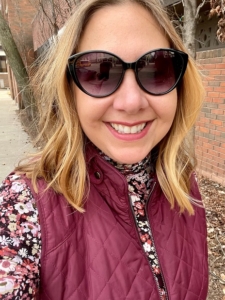As Good As Dead
 I learned a lot from my box of crayons growing up, about things I had never heard of before: Periwinkle, Burnt Sienna, Raw Umber, Maize. But even Red Orange couldn’t prepare me for the brilliance of a poppy. I saw my first ones in Italy, espresso-edgy, trying to take in as much as I could in a little over a week. I was overambitious, riding trains from north to south, from Venice to Naples and everywhere in between, but this was my style, to squeeze as much as possible out of each day.
I learned a lot from my box of crayons growing up, about things I had never heard of before: Periwinkle, Burnt Sienna, Raw Umber, Maize. But even Red Orange couldn’t prepare me for the brilliance of a poppy. I saw my first ones in Italy, espresso-edgy, trying to take in as much as I could in a little over a week. I was overambitious, riding trains from north to south, from Venice to Naples and everywhere in between, but this was my style, to squeeze as much as possible out of each day.
I spent one afternoon in Pompeii, running through the squares of streets in the blazing sun. It was so different than I had imagined. We’re shown images of a couple embracing, a paused dog, implying that only fragments remain. I had no idea the grid of the town was intact, that you could walk up and down the streets, block after block, could imagine living there, visiting a friend on the way to the bakery, potential catastrophe just over the horizon.
My modern life was different, full of technology – weather forecasting tools, tools to see the future, to save lives – though it wasn’t infallible. I did have a cell phone, but not an international calling plan. So I found a pay phone every couple of days and called home using a calling card. Catching each other was tricky. If the person on the other end of the line didn’t answer, sometimes I’d call right back, knowing that they might have been running to the phone. I caught my mother about half the time I tried. Through the din of the train station chatter, the hum of the buskers and stray dogs and incomprehensible babble, we asked each other, “You ok?” and received the automatic answers just as quickly. Something about my mother’s affirmative response was tinny-sounding, doubtful. “Yeah, everything’s…fine,” she’d say. But what could I do from there? I had to take her word for it.
After a week of frenetic sightseeing, the flight home was a welcome break, a chance to sit still, in spite of the cramped quarters. I turned my phone on once again after touching down in Newark and let my mother know I’d made it back to the States. A flurry of text messages began. My jet-lagged brain couldn’t take all the words at once. Your brother. Detoxing. Heroin. Two years, it had gone on. How had I failed to notice?
I wasn’t ignorant, exactly. I had seen Trainspotting. But it wasn’t like that. He had been snorting it, veins intact. No scars. You could snort it? I didn’t know about these things, didn’t want to know about these things, would leave the room when my bachelor uncle pulled the small bag from his front pocket, grabbed his rolling papers from the drawer in the table next to the couch. I heard bottles clink underneath the seats of my dad’s car and pledged to let anything I dropped down there vanish.
My brother had been confronted by his girlfriend and detoxed, violently, messily, hunched over buckets in his basement, and was, at that moment, on a bus to a 28-day treatment facility, my mother explained. We probably wouldn’t be able to contact each other during that time, except by mail. But I could try to call him, right now, if I wanted to. I felt the pressure of trying to find words that summed this all up: I’m shocked, I’m disappointed, I love you, I’m here for you. But where was he? I didn’t even know.
In fact, I had heroin on the brain during my trip, while facing that field of poppies in Pompeii, thinking about what sinister end is made from such beauty. I was able to travel to Italy because I had money to burn, finally, because I worked for a pharmaceutical company, the same company that first synthesized heroin and marketed it as a cough remedy for children in the early 1900s.
In fact, I had heroin on the brain during my trip, while facing that field of poppies in Pompeii, thinking about what sinister end is made from such beauty. I was able to travel to Italy because I had money to burn, finally, because I worked for a pharmaceutical company, the same company that first synthesized heroin and marketed it as a cough remedy for children in the early 1900s. I was on the fence about whether I could stand to keep working there. Heroin was tearing through our town, killing some of my classmates and banishing others to prisons. I planned the trip as a reward after finishing a large project, a chance to reset after a string of 15-hour days and 4 a.m. conference calls with colleagues around the world.
My brother and I were fewer than two years apart in age and grew up sharing buckets of Legos and singing along to the same records, but some time during our adolescence, our paths diverged. I excelled in school and was often recognized for my achievements. He gave up trying to keep up with me, then gave up trying at all. I got a series of jobs as soon as I was old enough to work and signed up for trips to Europe offered by our high school. Though I paid my own way, he seemed to resent the opportunities I made for myself.
I started going to the Andy Warhol Museum, Pittsburgh’s clubhouse for artsy misfits, with my friends in my late high school years. It gave me a place to belong. We sang along to the Velvet Underground songs that played throughout the building. That’s how I learned about heroin. It made good music. It was something to dance about. I’m feeling good. You know I’m gonna work it on oouuuuttt.
We’d head into the city, singing along together, miming Lou Reed’s attitude, cooler than cool, his dead-eyed stare. And thank God that I just don’t care. And thank God that I’m as good as dead. My mom had bought me all their records for Christmas, a treasure in those pre-internet days. She had a knack for picking up on the things I talked about most often and I was grateful for it. But I don’t know how much she investigated my interests, don’t know if she listened as he sneered, Her—ooh–in, it’s my wife, and it’s my life. I had straight A’s and a long leash, and was happy to be a tourist in the underworld, returning to history class on Monday morning with my notebook, ready to go.
He texted me back. I’ll probably cry if I talk to u. A no-go for the type of young men we grew. So there’d be no contact before he went in. But he knew I had tried. Later, I would write him a letter, my forte, I used to think, but I had no idea what to say.
I steeled myself and called my brother’s number. No answer. I wondered if I should call back one more time, but no, there was a buzz. He texted me back. Ill probably cry if I talk to u. A no-go for the type of young men we grew. So there’d be no contact before he went in. But he knew I had tried. Later, I would write him a letter, my forte, I used to think, but I had no idea what to say. I was encouraged to cheer him on. I know you can get past this, I started. But did I? I was having a hard time compiling my evidence.
The thrill of the trip withered as I tried to make sense of our new reality. The Trevi Fountain, the room where Keats convalesced, the Venetian canals glimmering at dusk. How could I have been having a good time when my brother was suffering? How could I not have known? How could he squander the life he had been given? I caught the bus at the airport as he was on a bus to some place he’d never been, too, the wrong kind of adventure. Later, I would look at the pictures, pity the woman caught in the middle of making dinner, no idea what was about to hit her. So much depends upon knowing when to walk out of a room.
Jessica Manack holds degrees from Hollins University and lives with her family in Pittsburgh, Pennsylvania. Her writing has recently appeared in Maudlin House, Still: the Journal and Litro Magazine. She is a recipient of a 2022 Curious Creators Grant. Keep up with her work at jessicamanack.com





